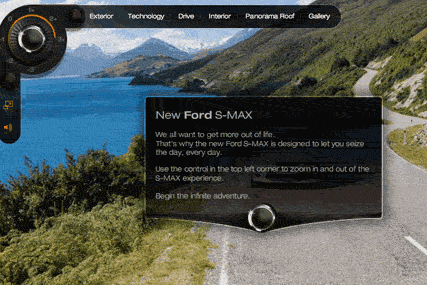 Mark Simpson, marketing director, Ford of Britain
Mark Simpson, marketing director, Ford of Britain
Marketing: How has the recession affected Ford’s marketing?
Simpson: We’ve had around 20% less budget to spend in the UK. I admire companies that continue to spend in recession but if your revenue is down 35%, what are you going to do? What we haven’t done is dash for ROI metrics – we were working on those anyway. We’ve continued to invest in brands. The recession happened in last quarter 2008 but thanks to car scrappage [allowances], 2009 was much better than we thought. Scrappage ended at the end of March and we’re starting to feel it.
Marketing: So has your marketing had to become more tactical?
Simpson: The great worry is you make short term recession decisions that you will regret later. You could abandon brand building in favour of tactical activity and then people don’t have a clear view of what you stand for. Yes, we have thought a little more about price than we have done hitherto but we set ourselves up as a representing value.
Marketing: Do recessions stifle innovation?
Simpson: We haven’t pulled away from [innovation] because the biggest word in marketing is consistency. We’re working with the Global Radio Group on big outdoor country house family screenings and have teamed up with a company that does projections onto real buildings to promote the new S-MAX model in the autumn. We’ve got a lot coming up targeting parents and kids in shopping centres and airports – digital posters with games and interaction, where the posters are half information and half interactive games.
Marketing: Ford was the first car company to advertise on Mumsnet. Do you think social media is in danger of being overhyped?
Simpson: Our engagement with Mumsnet would have happened despite the recession, as would our activity on Facebook and Twitter. Social media generates its own hype. The Fiesta launch in 2008 was our first social media foray because it was right for that target audience. Social media will grow and is a great way to get people talking about the brand.
Marketing: Are other channels having a ‘good recession’?
Simpson: TV is still the core channel – one of the reasons it’s still strong is because rate cards went down by 30% and that gets forgotten. Those rates are going to increase as people try to recover. We’re investing heavily in digital, in particular pay-per-click (PPC) as well as reformulating our natural search. We’re working openly with Google and are about to launch a YouTube channel. It acts a lot like TV and has huge viewership – not as much as a key programme on Channel 4 or 5. But it’s growing, particularly with young males and they are an audience we want to target.
It’s about understanding who we are trying to target and not just using channels for the sake of them. If a channel is not appropriate to the Mondeo or Galaxy customer, then we won’t use it. While the age demographics of the Ford S-Max might be late 30s or 40s, it’s a much younger and tech-savvy audience.
Marketing: How integrated is your marketing structure?
Simpson: Our teams sit completely together. Our digital specialists, above-the-line and below-the-line people sit together, but those terms aren’t relative anymore as channels are merging and skills are changing. We’re investing heavily in making sure we can communicate one-to-one which involves mobile – back in 2005 we ran Darwin Day looking for the future and we bet heavily on mobile. It was longer coming to the fore - it took the iPhone and larger screen devices, but we are getting engaged with that.
Marketing: Has your overall marketing mindset changed as a result of recession?
Simpson: You’d hope so. We’re planning for our revenue to improve next year but we haven’t set our budgets. One thing is clear - that whatever we do there’s a corner of the budget where we will continue doing new things – no recession should stop you doing new things or you will pay the price – the projections, Mumsnet - things we haven’t done before.
Marketing: Has the recession made procurement more powerful?
Simpson: Companies are getting much more concerned about getting procurement more involved in marketing. We have a team in the US that involves procurement of marketing services and we work well with them. We try and see they have enough information to do their job effectively. [But at the same time] I don’t need a purchaser’s opinion on my marketing.


